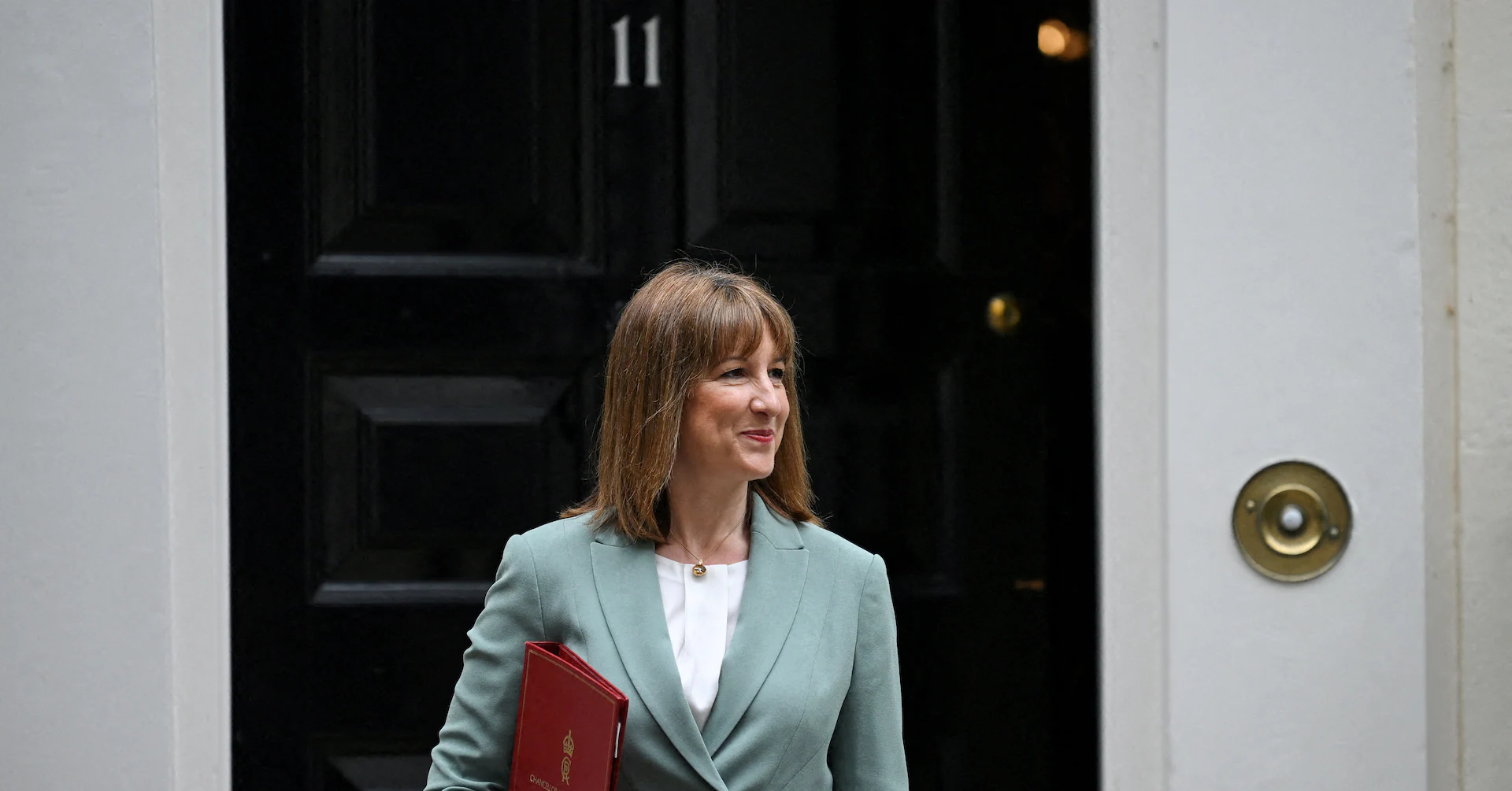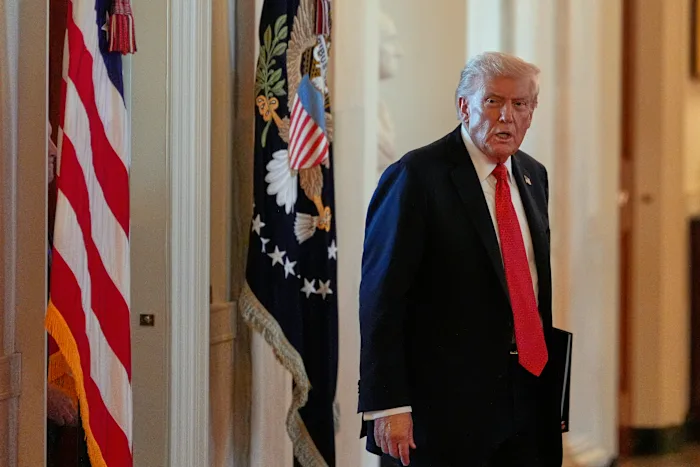Copyright Reuters

LONDON, Nov 4 (Reuters Breakingviews) - Fiscal goals often seem sensible on paper. The difficulty comes when sound budget management takes a backseat to the vagaries of an arbitrary straitjacket. Britain, whose finance minister Rachel Reeves will present a key budget on November 26, is a case study in the pitfalls. Yet better fiscal rules are possible. Between the turn of the century and 2024, the amount of countries adopting numerical goals to self-police spending doubled to 122, according to the International Monetary Fund (IMF), opens new tab. Independent overseers such as Britain's Office for Budget Responsibility (OBR) are also on the rise. Constraining profligate politicians, lest they anger bond markets, has clear appeal: In 2022, then-UK Prime Minister Liz Truss initially bypassed the OBR when announcing 45 billion pounds in tax cuts, prompting investors to dump sterling and gilts. Sign up here. Reviews of the evidence, including one in 2024 by Thomas Brändle and Marc Elsener, opens new tab, find that fiscal rules successfully curb spending. Still, they need to be flexible during downturns: the IMF estimates that countries exceeded deficit limits 50% of the time between 2004 and 2021. Hence workarounds like so-called escape clauses, delayed compliance periods and metrics that make adjustments for the economic cycle. The problems lie in the details. Take the first of Britain's two key fiscal rules, under which Reeves must keep tax revenues above day-to-day spending. The target doesn't refer to current financial reality but rather to the OBR's economic forecasts for future years. This means fiscal policy, and therefore bond markets, gets spun around by changes to inherently uncertain expectations, rather than reacting to what actually accrues in government coffers. Indeed, Reeves is now under pressure ahead of her November budget. The OBR will probably downgrade UK productivity growth, implying a more slowly expanding economy, hitting future tax receipts. To still comply with the first fiscal rule, Reeves may have to tighten spending by tens of billions of pounds. That seems odd given the poor accuracy of economic forecasts in general, to which the OBR is no exception, opens new tab. Assessing future productivity, in particular, is particularly fiendish. And it's all a sideshow compared with bond investors’ real concern about Britain’s day-to-day spending gap, stuck at nearly 2% of GDP, which is the rise in expenses that comes with an aging population. State pensions now cost 4.9% of GDP, compared with 3.5% in 2000. Fears are a bit overblown: welfare payments are stable overall, with much of the rise in current expenditure since 2019 being explained by higher interest rates pushing up debt-servicing costs. But the government has still damaged its credibility by refusing to raise income taxes and delaying the overhaul of inefficient revenue sources such as stamp duty. Instead Reeves has resorted to a raft of distortionary tax raids, like hiking national insurance, which may help meet targets but don't always make sense economically. In other ways, the rules can still be too tight. Take the European Union, whose Stability and Growth Pact budget framework doesn't generally exempt debt used for capital expenditures, despite bond investors generally welcoming such borrowing. Excluding investment-related deficits makes Italy’s fiscal position look stronger, for example. Even the United Kingdom, which has long applied a “golden rule” of balancing only current spending, effectively limits growth-boosting investments through a second rule urging debt to fall relative to GDP. Fiscal goals may not be the main culprit behind declining public investment in the West since the 1980s, evidence suggests, opens new tab. But they still limit ambitious moves, such as the 28-billion-pound green-energy investment plan the British Labour Party scrapped before the election. The tragedy is that getting debt falling as a percentage of GDP may not even be worth the effort, since that figure does not correlate well with borrowing costs. Reeves’ recent overhaul of fiscal rules moves in the right direction, shortening the compliance horizon and redefining debt by netting liabilities against the state's financial assets. This hack has allowed her to maintain public sector net investment near 2.5% of GDP. However, physical assets such as infrastructure remain excluded. It would be even better to remove all limits on capital spending while requiring day-to-day expenditures to roughly match tax revenues within a year. Britain’s pre-1980 experience suggests that the productivity dividend of public investment being closer to 4% of GDP would be large, and could make balancing the current budget easier over time. Independent bodies like the OBR could ensure officials don’t disguise current spending as investment, and guide a third “countercyclical bucket” so that, rather than suspend the rules during downturns, temporary tax cuts and stimulus can offset them. Even if she never embraces such a framework, Reeves should focus on separating growth strategies from the need to fund the welfare state, while downplaying rigid numerical targets. As Dean Turner, UK economist at UBS Wealth Management, says: “It’s fair to have rules, but also for the government to argue against them.” Even the bond market prefers economic policy to be a coherent vision rather than an Excel spreadsheet. Follow Jon Sindreu on X, opens new tab and LinkedIn, opens new tab. Context News For more insights like these, click here, opens new tab to try Breakingviews for free. Editing by Liam Proud; Production by Shrabani Chakraborty Breakingviews Reuters Breakingviews is the world's leading source of agenda-setting financial insight. As the Reuters brand for financial commentary, we dissect the big business and economic stories as they break around the world every day. A global team of about 30 correspondents in New York, London, Hong Kong and other major cities provides expert analysis in real time. Sign up for a free trial of our full service at https://www.breakingviews.com/trial and follow us on Twitter @Breakingviews and at www.breakingviews.com. All opinions expressed are those of the authors. Jon Sindreu is the London-based global economics editor for Breakingviews. He was previously a reporter and a columnist for the Wall Street Journal, where he covered macroeconomics, financial markets and aviation for 11 years. He holds a master’s degree in financial journalism from City St George’s, University of London. He also holds degrees in computer science and journalism from Universitat Autònoma de Barcelona, in his natal Catalonia.



